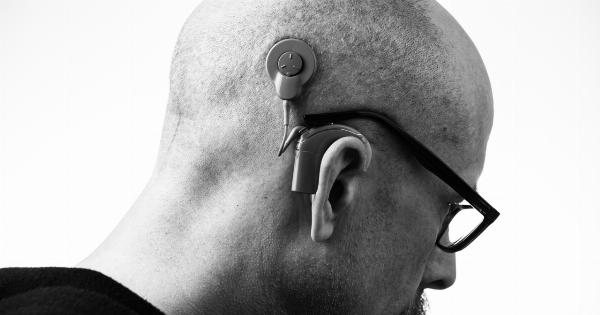Hearing impairment is a common condition that affects millions of people around the world, and it can have a significant impact on a child’s development and quality of life.
If you are concerned that your child may have hearing problems or if your child is showing signs of hearing loss, it’s important to take action right away.
In this article, we will discuss some of the common signs of hearing impairment in children and what you can do to help your child.
Signs of Hearing Impairment in Children
Children with hearing impairment may not be able to communicate effectively with others, which can have a negative impact on their self-esteem and social development.
Here are some signs that your child may have hearing problems:.
Delayed Speech and Language Development
Children with hearing problems may not develop speech and language skills at the same rate as their peers. They may have difficulty understanding and producing sounds, words, and sentences.
If your child is not babbling or speaking by the age of 12 months, or if they are not using simple words by the age of 18 months, it’s important to have them evaluated by a healthcare professional.
Difficulty Following Directions
Children with hearing impairment may have trouble following directions, especially when there is background noise or distractions present.
If your child seems to have difficulty understanding what you are saying, or if they seem to ignore you when you are speaking to them, it’s important to have their hearing evaluated.
Difficulty in School
Children with hearing problems may have difficulty in school, particularly in noisy or group settings. They may struggle to understand the teacher’s instructions or may have trouble participating in class discussions.
If your child is struggling in school, it’s important to have their hearing evaluated to rule out any potential hearing problems.
Turning Up the Volume
If your child is constantly turning up the volume on the TV or stereo, or if they seem to have difficulty hearing normal conversation, it’s important to have their hearing evaluated.
Children with hearing impairment may not be able to hear sounds at a normal volume, which can make it difficult for them to engage in everyday activities and conversations.
Behavioral Issues
Children with hearing problems may become frustrated, irritable, or withdrawn due to the difficulties they are experiencing. They may also display behavioral issues such as aggression, tantrums, or hyperactivity.
If your child is exhibiting behavioral issues, it’s important to have their hearing evaluated to rule out any potential hearing problems.
What Should You Do?
If you are concerned that your child may have hearing problems, it’s important to take action right away.
Consult with a Healthcare Professional
The first step in addressing hearing problems in children is to consult with a healthcare professional. Your pediatrician or family doctor can evaluate your child’s hearing and refer you to a specialist if necessary.
Visit an Audiologist
An audiologist is a healthcare professional who specializes in hearing problems. They can perform a comprehensive hearing evaluation to determine if your child has any hearing problems and recommend appropriate treatment options.
Treatment Options
If your child is diagnosed with hearing problems, there are several treatment options available, including:.
- Hearing aids
- Cochlear implants
- Surgical procedures
- Speech therapy
The appropriate treatment option will depend on your child’s specific hearing problems and needs.
Support Your Child
If your child is diagnosed with hearing problems, it’s important to provide them with emotional support and encouragement. Be patient, understanding, and willing to make accommodations to help your child overcome their hearing problems.
Conclusion
Hearing impairment can have a significant impact on a child’s development and quality of life. If you are concerned that your child may have hearing problems, it’s important to take action right away.
Consult with a healthcare professional, visit an audiologist, and provide your child with emotional support and encouragement as they navigate their hearing problems.























